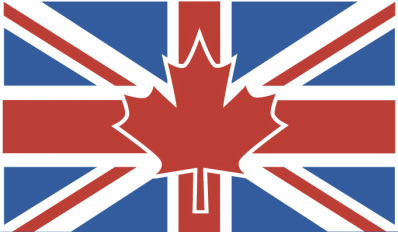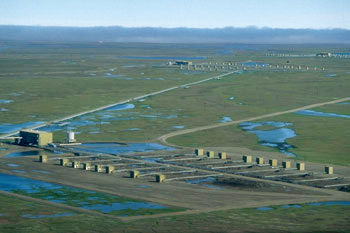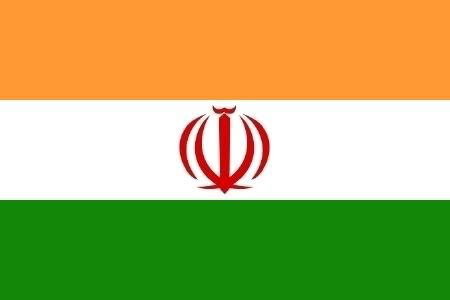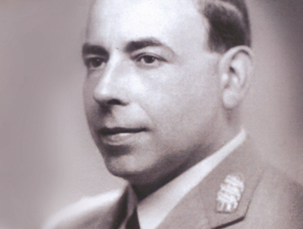United Kingdom of Great Britain & Canada - 1960-61

Head of State: Queen Elizabeth II
Following the death of the childless King Edward VIII in 1959, the eldest daughter of Albert (1895-1956) Prince of Cornwall and Ontario assumed the throne.

Queen Elizabeth's first action after assuming the throne was the merger of the crowns of Great Britain and Canada. The Queen refused to involve herself in the 1960 parliamentary elections, a radical change from Edward's blatant bias in favor of conservative parties. Instead, the Queen embarked on a world tour of the Commonwealth and its allies (with the exception of Australia). Many were surprised by the Queen's decision to visit many downtrodden areas of the countries she visited. In a speech in Lagos, Nigeria the Queen was able to announce the creation of CANAID-the Commonwealth aid program established by the newly elected Liberal government. Queen Elizabeth the second signals the start of a new era in the Commonwealth.
Head of Government: Lester B. Pearson
Type of Government: Constitutional Monarchy
Population: 21,000,000
Capital: London (De Jure) Ottawa (De Facto)
Domestic
Internal Events:
SOCIAL WELFARE ACT OF 1960:
Following the Liberal Party's landslide victory in the 1960 election, the party immediately set to work implementing its agenda. This act establishes Universal Healthcare, free university education, free childcare, a child benefit, and huge investments into all types of scientific research. Mandatory Maternity and Paternity Leave is a world first. The Liberal Party hopes to give all Canadians the world's highest standard of living. (and unofficially encourage higher population growth) Of course, Conservatives were fanatically opposed to the Act. Their biggest, and most valid criticism of the Act was its expense. Taxes would have to be raised in order to pay for these programs. However, the Liberals were in luck. A region of Alaska, hitherto almost completely unknown, was discovered to contain one of the largest deposits of oil in North America. Prudhoe Bay is the Liberal's golden goose. Planned Tax increases were able to be cut in half thanks to the projected revenues of the field. A Sovereign Wealth fund will be established to invest oil revenues for the betterment of the Empire.
 (an image of a drill site at Prudhoe Bay)
(an image of a drill site at Prudhoe Bay)
 (A finished section of the new Trans-Alaskan Oil Pipeline)
(A finished section of the new Trans-Alaskan Oil Pipeline)
*The Classified Pearson Memorandum of 1960*
The Pearson memorandum was the result of a massive study concerning reunification and the Commonwealth of Nations (CON) The study was commissioned by the Prime Minister Pearson following his election. Experts from MI6 and the Foreign Ministry worked around the clock on this. The recommendations written in this memorandum will undoubtedly guide British policy in the years to come.
Worker's Commonwealth of Britain: It is clear that Canada lacks the strength to successfully retake the British Isles in the forseeable future. A successful reunification can only happen if the Commonwealth's military forces are significantly depleted, or if is a large amount of support amongst the populace in the British Isles. Analysts believe a sudden Civil War or Popular Revolution would be the most likely scenarios for reunification. The UK in Canada should focus on the economic development of the homeland and the Commonwealth of Nations. The average citizen of the London regime needs to believe that capitalism and the Windsor monarchy can provide a functional, democratic society with a superior standard of living.
Commonwealth of Nations: Recent events in Australia have greatly concerned Ottawa. It is unclear whether or not Australia will remain a part of the Commonwealth. To prevent further erosion of British power, a CANAID organization should be established to develop the poorer Commonwealth States. Hopefully CANAID can achieve similar or even superior results than the aid programs of the International.
Economic Status:
-Great! Oil extraction in Prudhoe Bay is scheduled to begin by 1965. Alaska finds itself in the international spotlight following the discovery of oil in the province.
Military:
The Canadian Army is small, but very well equipped. The Navy and Air Force have modern vessels and aircraft. Canada relies on chemical weapons for deterrence and does not have plans to acquire nuclear weapons in the near term. Four CANDU nuclear power stations are scheduled to be completed by 1966, and will provide electricity for Ontario and Quebec. A follow on batch of reactors is planned for the Maritime provinces. The original goal of the CANDU program was to replace all of Canada's fossil fuel power plants with nuclear reactors. Due to the discovery of oil in Alaska, the program will focus on converting the Eastern provinces to nuclear energy. Any plans for nuclear reactors in Western Canada have been cancelled or indefinitely postponed.
Army: 120,000 men
Navy:
Air Force:
 (The Avro Vulcan, a symbol of Canada's power)
(The Avro Vulcan, a symbol of Canada's power)
Alliances, Agreements, Pacts, and Trade:
Member of the Commonwealth of Nations
Diplomacy:
To Iran @Louis Dabout
From UK
Secret
Can we begin construction of the radar network and radio & TV antennas we discussed? They should be finished by 1963

Head of State: Queen Elizabeth II
Following the death of the childless King Edward VIII in 1959, the eldest daughter of Albert (1895-1956) Prince of Cornwall and Ontario assumed the throne.

Queen Elizabeth's first action after assuming the throne was the merger of the crowns of Great Britain and Canada. The Queen refused to involve herself in the 1960 parliamentary elections, a radical change from Edward's blatant bias in favor of conservative parties. Instead, the Queen embarked on a world tour of the Commonwealth and its allies (with the exception of Australia). Many were surprised by the Queen's decision to visit many downtrodden areas of the countries she visited. In a speech in Lagos, Nigeria the Queen was able to announce the creation of CANAID-the Commonwealth aid program established by the newly elected Liberal government. Queen Elizabeth the second signals the start of a new era in the Commonwealth.
Head of Government: Lester B. Pearson
Type of Government: Constitutional Monarchy
Population: 21,000,000
Capital: London (De Jure) Ottawa (De Facto)
Domestic
Internal Events:
SOCIAL WELFARE ACT OF 1960:
Following the Liberal Party's landslide victory in the 1960 election, the party immediately set to work implementing its agenda. This act establishes Universal Healthcare, free university education, free childcare, a child benefit, and huge investments into all types of scientific research. Mandatory Maternity and Paternity Leave is a world first. The Liberal Party hopes to give all Canadians the world's highest standard of living. (and unofficially encourage higher population growth) Of course, Conservatives were fanatically opposed to the Act. Their biggest, and most valid criticism of the Act was its expense. Taxes would have to be raised in order to pay for these programs. However, the Liberals were in luck. A region of Alaska, hitherto almost completely unknown, was discovered to contain one of the largest deposits of oil in North America. Prudhoe Bay is the Liberal's golden goose. Planned Tax increases were able to be cut in half thanks to the projected revenues of the field. A Sovereign Wealth fund will be established to invest oil revenues for the betterment of the Empire.
 (an image of a drill site at Prudhoe Bay)
(an image of a drill site at Prudhoe Bay)*The Classified Pearson Memorandum of 1960*
The Pearson memorandum was the result of a massive study concerning reunification and the Commonwealth of Nations (CON) The study was commissioned by the Prime Minister Pearson following his election. Experts from MI6 and the Foreign Ministry worked around the clock on this. The recommendations written in this memorandum will undoubtedly guide British policy in the years to come.
Worker's Commonwealth of Britain: It is clear that Canada lacks the strength to successfully retake the British Isles in the forseeable future. A successful reunification can only happen if the Commonwealth's military forces are significantly depleted, or if is a large amount of support amongst the populace in the British Isles. Analysts believe a sudden Civil War or Popular Revolution would be the most likely scenarios for reunification. The UK in Canada should focus on the economic development of the homeland and the Commonwealth of Nations. The average citizen of the London regime needs to believe that capitalism and the Windsor monarchy can provide a functional, democratic society with a superior standard of living.
Commonwealth of Nations: Recent events in Australia have greatly concerned Ottawa. It is unclear whether or not Australia will remain a part of the Commonwealth. To prevent further erosion of British power, a CANAID organization should be established to develop the poorer Commonwealth States. Hopefully CANAID can achieve similar or even superior results than the aid programs of the International.
Economic Status:
-Great! Oil extraction in Prudhoe Bay is scheduled to begin by 1965. Alaska finds itself in the international spotlight following the discovery of oil in the province.
Military:
The Canadian Army is small, but very well equipped. The Navy and Air Force have modern vessels and aircraft. Canada relies on chemical weapons for deterrence and does not have plans to acquire nuclear weapons in the near term. Four CANDU nuclear power stations are scheduled to be completed by 1966, and will provide electricity for Ontario and Quebec. A follow on batch of reactors is planned for the Maritime provinces. The original goal of the CANDU program was to replace all of Canada's fossil fuel power plants with nuclear reactors. Due to the discovery of oil in Alaska, the program will focus on converting the Eastern provinces to nuclear energy. Any plans for nuclear reactors in Western Canada have been cancelled or indefinitely postponed.
Army: 120,000 men
Navy:
- 2 Modern Fleet Carriers: Colossus, Majestic (1 under construction due by 1964)
- 1 Light Carrier: Bonaventure (to be sold or scrapped by 1966)
- 2 Amphibious Assault Ships
- 23 Destroyers
- 36 Frigates
- 15 diesel electric subs
- Various other vessels
Air Force:
 (The Avro Vulcan, a symbol of Canada's power)
(The Avro Vulcan, a symbol of Canada's power)- 300 Jet Fighters
- 80 Strategic Bombers
- Various other planes
Member of the Commonwealth of Nations
Diplomacy:
To Iran @Louis Dabout
From UK
Secret
Can we begin construction of the radar network and radio & TV antennas we discussed? They should be finished by 1963
Last edited:





